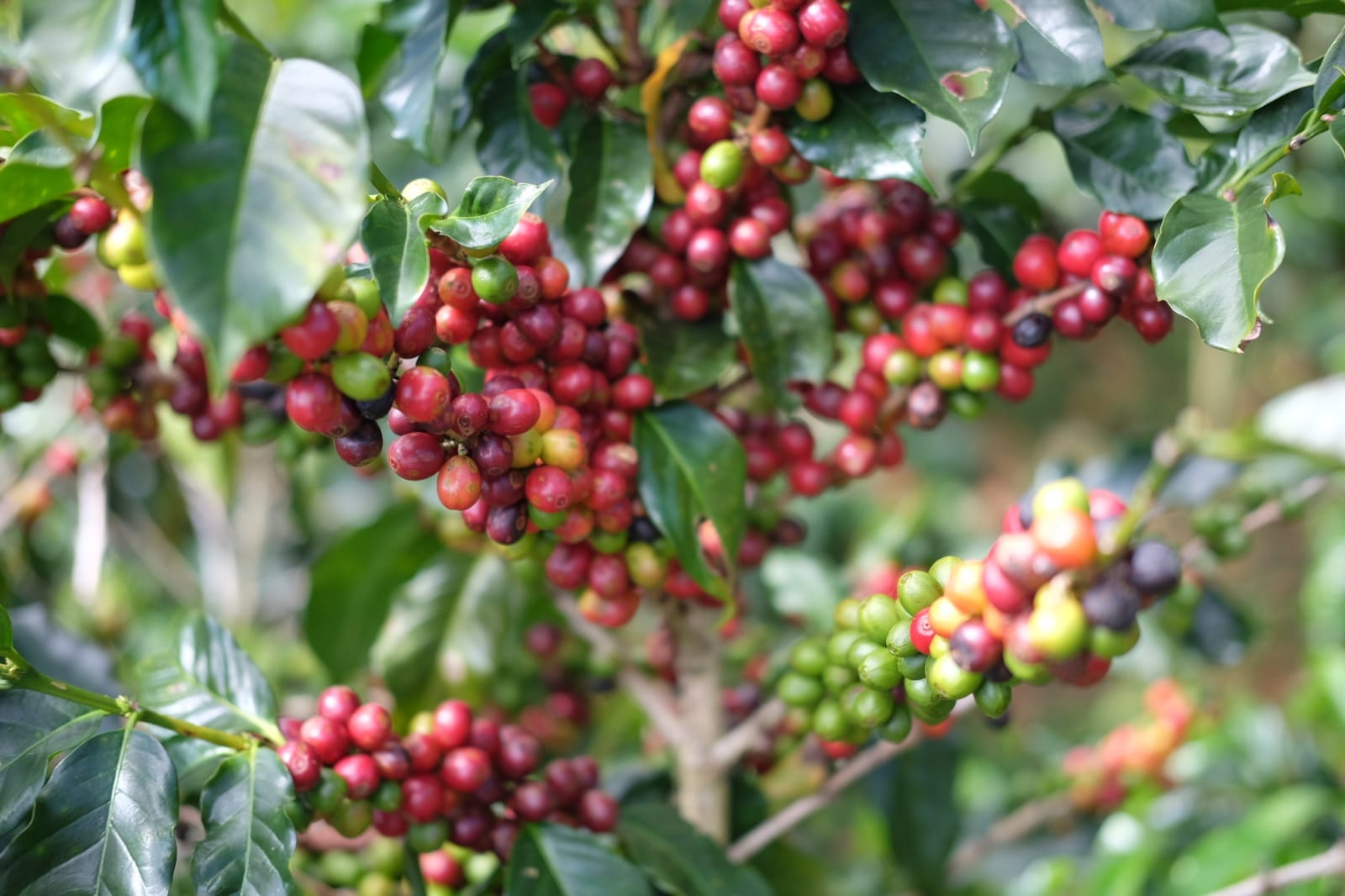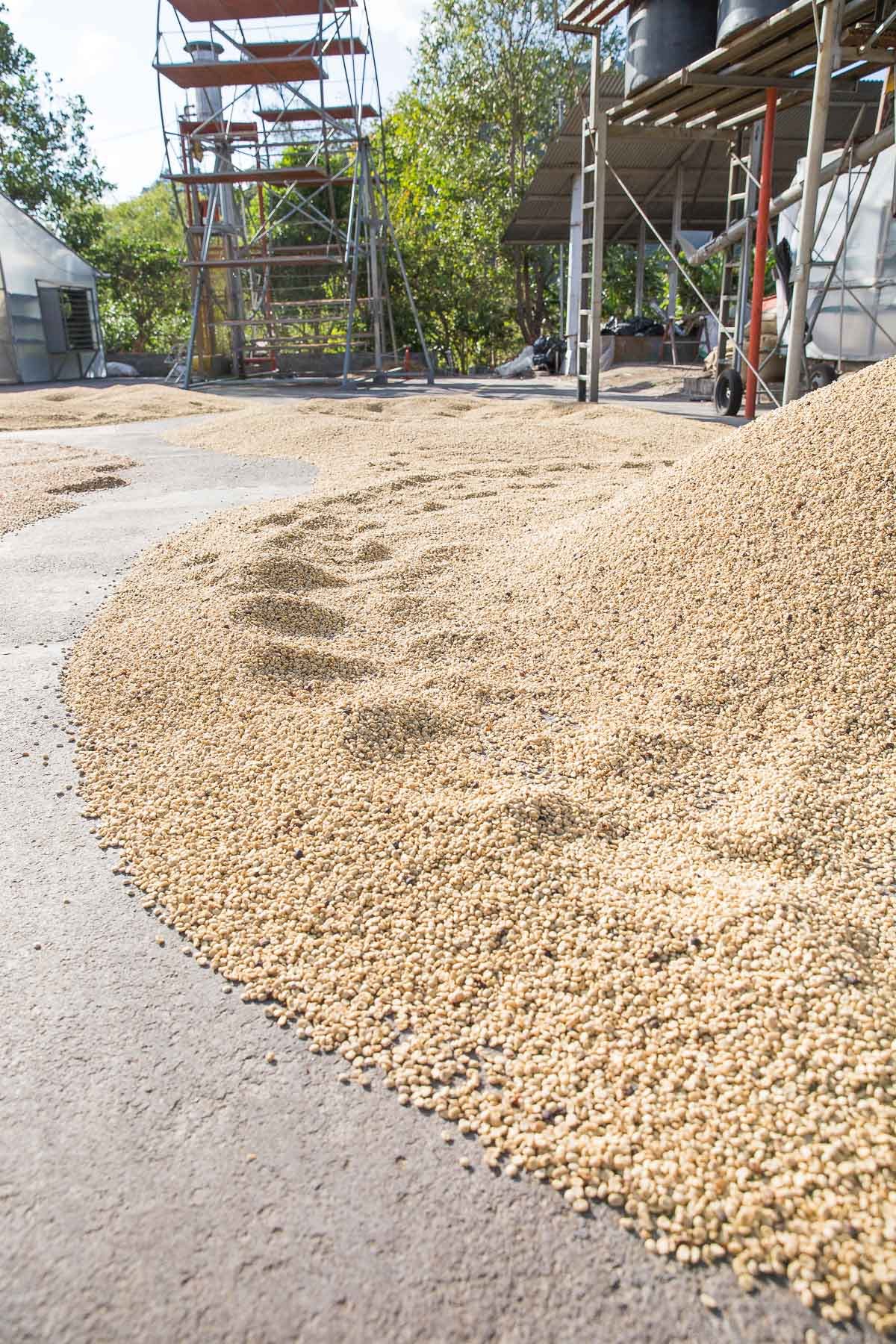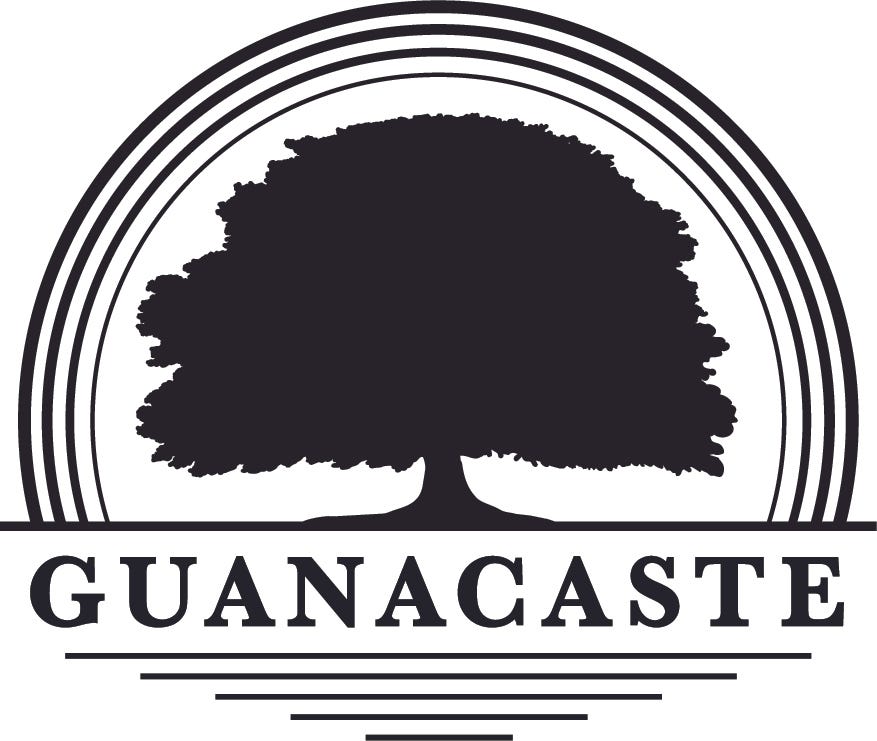Coopedota is a coffee cooperative in Santa Maria de Dota, Tarrazú, Costa Rica. Here, Ally’s Central America buyer Bram de Hoog, based in San Jose, Costa Rica, shares the history and operating principles of Coopedota, an innovative coffee co-op since the day it was founded. Experimental drying wheel, the RueDota, creates additional patio space.
Experimental drying wheel, the RueDota, creates additional patio space.
Coopedota is one of the most modern cooperatives in Costa Rica. It is not only modern in terms of processing techniques, it is also one of the most forward-thinking and specialty coffee focused co-ops. The cooperative was started in 1960 by a handful of courageous producers with a budget of only three hundred dollars. In fifty-eight years, the coop has earned many accolades and has converted itself into a pioneer of the Costa Rican coffee industry.
The cooperative has hundreds of members in the in around the ‘Dotas’ of the Tarrazú region. The ‘Dotas’ are a handful of towns such as Santa Maria de Dota, San Pablo de Dota and San Marcos de Dota. Since the first coffee trees were planted in these town, Dota coffee has obtained international fame for its quality. The zone produces outstanding coffee due to the unique microclimate and multi-generation dedication to quality agriculture. The microclimate is based on farm elevations up to 2000 meters above sea level on plots tucked between even higher mountain slopes, which create an oasis where the coffee plants enjoy the benefits of higher elevations but do not have to compromise with extreme weather.
Coopedota is located in the biggest town in the area: Santa María de Dota. The cooperative forms a central part of the community and almost all neighboring towns are connected to it in some way. Coopedota keeps the tradition of coffee alive. Each year 15 local high school students graduate from the coop-run barista course and go on to participate in competitions and other coffee-related businesses and events. Adjacent to the Coopedota mill and offices is Café El Privilegio, a coffee shop overlooking the main road into town. The café staff are all graduates of Coopedota’s farm to cup course. Starting with the technicalities of seedling breeding and moving through management of pest and plagues, harvesting, and milling, the course concludes with lessons in barista skills. The culminating activity is a barista competition held according to World Coffee Events World Barista Championship standards and judged by members of Costa Rica’s Specialty Coffee Association. Modeling the RueDota
Modeling the RueDota
Coopedota has a multi-facted approach to running a coffee cooperative. First of all, the co-op has a relatively high entry barrier for producers. The producers supplying the co-op, as part-owners of the business, have agreed to be careful about who to accept as members. The main factor in this process is the internal certification system the co-op uses to determine the potential quality of a member´s coffee, based on a farm’s elevation and varieties planted. The producers who have a plantation with only pure arabica strains (meaning no hybrids crossed with rust-resistant Timor Hybrid varietal derived from Robusta) qualify to supply coffee to the AA product line, for which they receive a premium. Additionally, if coffee has less than 4% floaters, it will be part of the AAA product line, earning the producer a larger premium. Unloading coffee cherries to be measured at Coopedota’s wetmill.
Unloading coffee cherries to be measured at Coopedota’s wetmill.
Furthermore, Coopedota is one of the only cooperatives in Costa Rica that uses the washed fermentation processing technique. Almost all other wet mills, both cooperative and private, use mechanical demucigenators, which mechanically remove the mucilage by scrubbing it off immediately after depupling the bean from the cherry, as opposed to fermenting coffee and then washing off the mucilage that has been loosened during fermentation. Using the washed fermentation process results in a distinctive flavor profile which is not commonly found elsewhere in Costa Rica. This method is uncommon in Costa Rica because of the water usage permits. CoopeDota has received the permit because the water used comes only from terrain owned by the coop and is fully recycled or repurposed. Additionally, CoopeDota is the first certified carbon neutral coffee cooperative.
Commitment to environmental stewardship is another aspect of Coopedota’s forward thinking approach to coffee production. Coopedota preserves protected wild forests, natural parks for recreational use, and the region’s fresh water sources. Coffee pulp is composted on several of Coopedota’s farms, using EM (effective microorganisms) to speed up the process. The co-op uses this as fertilizer on their farms and makes it available to members. Biomass energy from other organic waste (cut weeds/grasses, coffee parchment, pulp) is used to create creating biogas, which can be used for heating and fuel. The aguas mieles, or “sugar waters,” left after washing coffee are sprayed on star grass that can be used as cattle feed. Using the contaminated waters as a form of fertilizer efficiently repurposes post-processing water.
Biomass energy from other organic waste (cut weeds/grasses, coffee parchment, pulp) is used to create creating biogas, which can be used for heating and fuel. The aguas mieles, or “sugar waters,” left after washing coffee are sprayed on star grass that can be used as cattle feed. Using the contaminated waters as a form of fertilizer efficiently repurposes post-processing water.
Coffee produced by Coopedota is the first verified Carbon Neutral coffee made available to the international market. The auditor Carbon Clear verifies against PAS 2060, developed by the British Standards Institute in response to the need for a consistent method for assessing the life cycle greenhouse gas emissions associated with products or services.
 Clean, sun-dried, washed coffee from Coopedota.
Clean, sun-dried, washed coffee from Coopedota.
Coopedota’s goal, since its inception in 1960, has been able to afford its members stability from coffee. The Guanacaste Core Coffee uses Dota’s AA coffee and reflects the dedication of the cooperative as an organization and of the members as experienced coffee producers while providing the rich, complex terroir of the Dota region.
Coopedota's coffee contributed to the first several harvests of Ally's Guanacaste Core Coffee.

Read more about our Core Coffee program, and follow this publication for more origin reports and connections to the coffee community.
Contact Us if you would like to learn more about our green coffee offerings, learning opportunities, or partnerships at origin.

